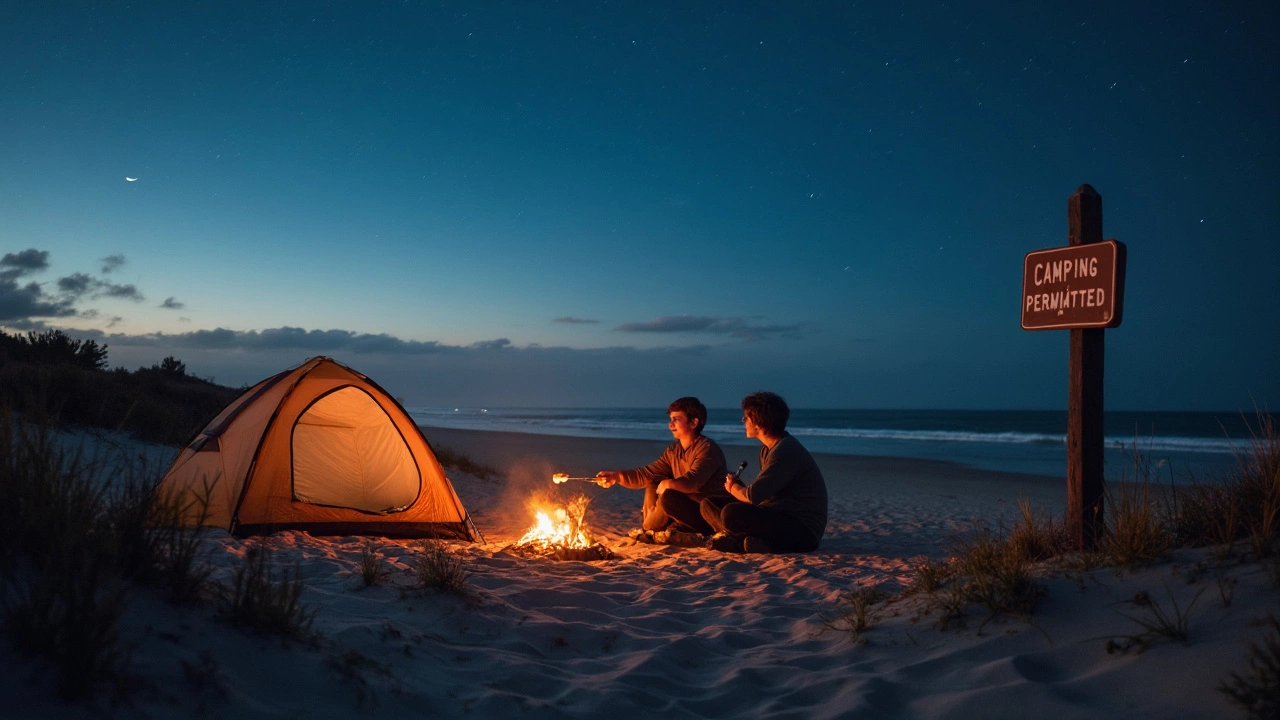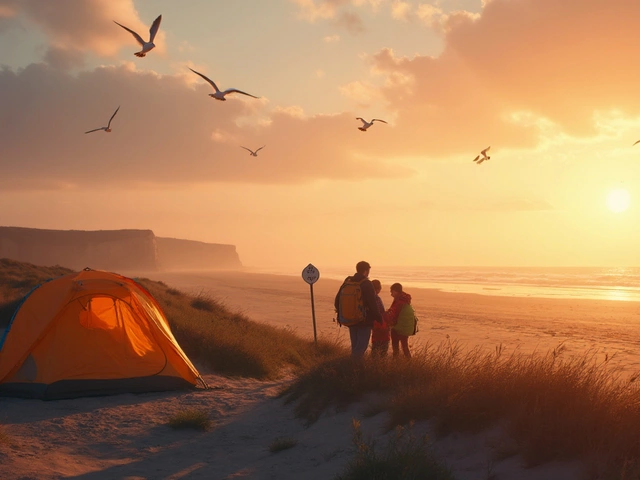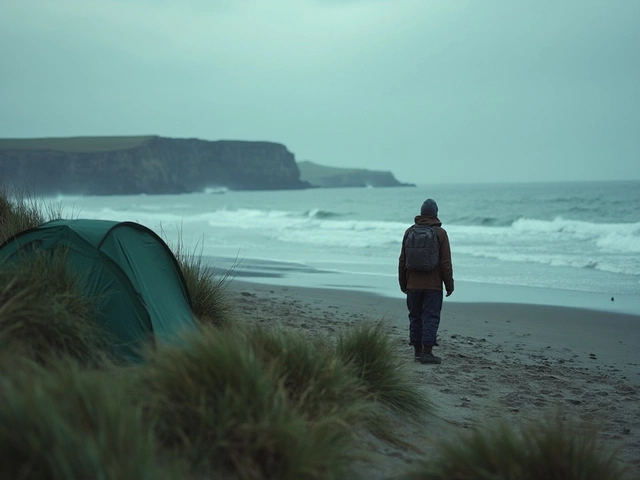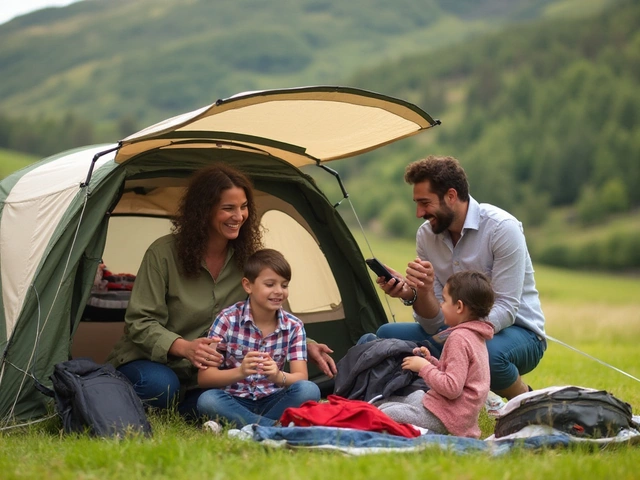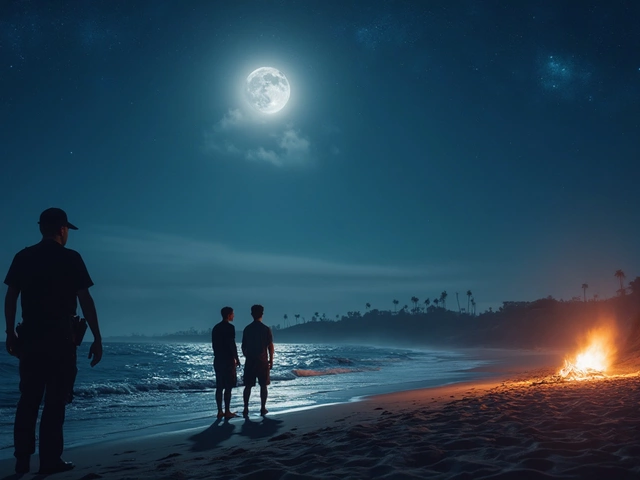If you're picturing yourself snoozing on the sand to the sound of crashing waves, you've probably wondered: is wild camping actually legal in California—especially on beaches? The straight answer is, you can't just grab a tent and set up camp anywhere you want along the coast. Most of California’s beaches are off-limits for wild camping, and rangers are pretty strict about enforcing the rules.
Coastal land here is a mix of state parks, private property, and protected areas. Each one has its own set of rules, but “no overnight camping” signs are everywhere—and they really mean it. If you ignore these and try to wing it anyway, you risk getting a fine or even being asked to leave by law enforcement, sometimes in the middle of the night. There's a reason you rarely see random tents after dark on California’s famous shores.
- Can You Camp Anywhere Along the California Coast?
- Legal Beach Camping Spots and How to Find Them
- Risks and Penalties: What Happens if You Get Caught Wild Camping?
- Tips for Keeping Your Beach Camping Trip Low-Key
Can You Camp Anywhere Along the California Coast?
The short answer is no—wild camping on most California beaches isn’t allowed. Beachfront land is tightly regulated by state and local laws. Most stretches are either state parks, nature preserves, or private property. Rangers don’t mess around if they spot an unauthorized tent or sleeping bag. Now and then, people try their luck, but it rarely ends well.
If you dream about parking your RV or rolling out a sleeping bag right by the water, keep this in mind: Most public beaches have posted hours and usually close at sunset or 10 pm. Overnight stays on the sand, outside of marked campsites, are almost always off-limits. Even secluded spots you find after a long walk could be under surveillance—and rangers patrol often, especially during summer.
Here’s a quick look at how beach rules are divided up:
- State Parks: Many of California’s most scenic beaches are also state parks. Camping is only allowed in designated areas—never just anywhere you see an empty spot.
- County or City Beaches: Almost all are day-use only. Overnight camping is a hard no.
- Private Beaches: Setting foot here after dark can also get you trespassing charges, not just a warning.
There are a handful of legal beach campsites scattered up and down the coast, but these fill up months in advance, especially between April and September. Spontaneous wild camping isn’t just illegal—it’ll probably leave you dealing with a fine or getting booted out by security or local police.
To give you an idea of how strictly it’s enforced, several counties report more than 1,000 citations a year for illegal camping along the coast.
| Area | Can You Camp? | Notes |
|---|---|---|
| State Beaches | No (unless in designated sites) | Rangers patrol nightly |
| City/County Beaches | No | Usually close at sunset |
| Private Beaches | No | Considered trespassing |
| Designated Campsites | Yes | Permit required, book in advance |
So, if you’re hoping for that spontaneous overnight by the Pacific—think again. The only safe bet is planning ahead and using an official campground.
Legal Beach Camping Spots and How to Find Them
It's way easier to plan a night on the sand if you stick to legal beach campsites. The truth is, almost all wild camping is banned on California beaches, but there are a few exceptions if you know where to look. Tons of people miss out on cool spots just because they don’t know official beach campgrounds even exist.
Some popular legal beach campsites include:
- Jalama Beach County Park (Santa Barbara County) – Sweet spot for both tents and RVs, open year-round and right on the sand.
- Refugio State Beach (also near Santa Barbara) – Known for palm trees and mellow vibes. You have to reserve a spot, especially during the summer.
- San Onofre State Beach (San Diego County) – Famous for surfing and long coastline. The campground is up on the bluff but just a quick walk from the water.
- Dockweiler State Beach (Los Angeles County) – Right under LAX flight paths, but super popular since it’s one of the few places near LA you can camp on the beach legally, mostly for RVs but a few tent spots exist.
- Sonoma Coast State Park (Sonoma County) – Campsites scattered along several small beaches, a great place up north if you want campfires and direct beach access.
To find these beach campsites and others, don’t just search “camping near me” and hope for the best. Use these methods to save time:
- Check out ReserveCalifornia.com. Almost every state-managed beach campsite in California can be reserved here. Spots go fast, sometimes months ahead for summer weekends.
- County websites (like Santa Barbara Parks) let you book county beach parks that aren’t listed on state sites.
- Apps like The Dyrt or Hipcamp show hidden gems, plus private beach campsites you’d never find on your own.
Here's a quick cheat sheet for some of these campgrounds:
| Beach Campground | Region | Reservation Needed? |
|---|---|---|
| Jalama Beach | Santa Barbara | Yes (and walk-ins possible) |
| Refugio State Beach | Santa Barbara | Yes |
| San Onofre State Beach | San Diego | Yes |
| Dockweiler State Beach | Los Angeles | Yes |
| Sonoma Coast State Park | Sonoma | Yes |
Don’t risk just showing up—rangers really do check reservations, especially during peak season. Book ahead, show your permit, and you’ll avoid the stress of being booted off the sand in the middle of the night.
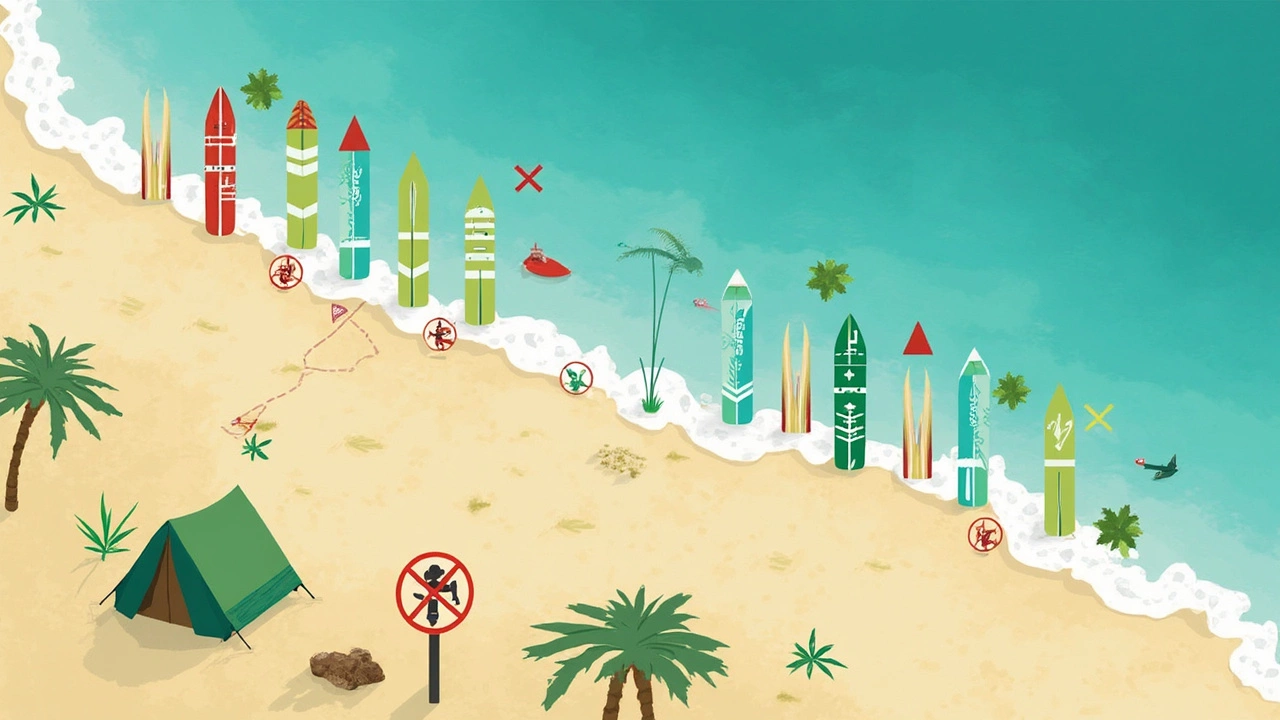
Risks and Penalties: What Happens if You Get Caught Wild Camping?
If you try wild camping on California beaches where it’s not allowed, you’re rolling the dice. Most beaches have local rules, but breaking them can hit your wallet hard. Rangers or local cops usually show up at dawn to check for illegal campers. Sometimes, they even patrol at night—especially in popular spots during summer when people try to sneak in.
So, what’s the damage if you get caught? In many places along the coast, the fine for illegal camping runs from $150 to $1,000. It mostly depends on the local city or county. Here’s what you might be dealing with:
- Ticket or Fine — Expect a citation on the spot. Most police don’t mess around with warnings if you’re camping where you shouldn’t be.
- Eviction from the Site — You’ll be told to pack up and leave immediately. Sometimes they’ll wait and watch as you break down your setup.
- Court Appearance — In rare cases, ignoring a ticket can land you in court, especially if you become a repeat offender.
Below is a quick snapshot of common fines at a few key California beaches:
| Beach | Typical Fine | Enforcement Style |
|---|---|---|
| Santa Monica State Beach | $270 | Frequent night and morning patrols |
| Malibu Beaches | $350+ | Surprise ranger sweeps |
| San Diego City Beaches | $100–$500 | Strict and regular checks |
| Monterey Bay Area | $200–$600 | Rangers issue tickets quickly |
People sometimes try to dodge the rules, but most get caught—especially near main beach entrances, parking lots, and boardwalks. Your gear (like stoves or sleeping bags) makes you stand out. Some campers think they can just sleep without a tent and avoid trouble, but even sleeping on the sand can land you a ticket for violating municipal codes or park rules.
Besides fines, you risk having your details put into a system that tracks repeat offenders, making future slip-ups even riskier. If you rack up a few tickets, next time might not just mean a fine—it could mean a ban from certain parks for a year or more. So if you’re thinking about sneaking a night on the beach, ask yourself: is it worth the headache and cash?
Tips for Keeping Your Beach Camping Trip Low-Key
If you want to enjoy wild camping vibes on California beaches without running into trouble, you’ll need to play it smart. This isn’t about hiding from the cops, but about being respectful and blending in. Here’s how people pull off a chill beach camping experience:
- Stick to legal spots whenever possible. Some state and county parks allow beach camping—but you usually need to book in advance. Places like Jalama Beach, Refugio State Beach, and San Elijo State Beach have official campsites right on the sand. They’re super popular in summer, so snagging a reservation early is key.
- Arrive late, leave early. If you’re somewhere it’s a gray area—or you just like quiet—get there around dusk, set up quickly, and pack up at sunrise. This isn’t foolproof, but most rangers patrol during the day and right after dark. Avoid drawing attention to yourself, and never set up massive tents or noisy setups.
- Minimize your footprint. Always clean up after yourself and leave the spot even cleaner than you found it. Rangers crack down hardest where they find trash or open fires. California law straight up bans open fires on most public beaches unless it’s in a designated fire ring.
- Know the rules about fires. Even camp stoves are sometimes prohibited. Check local beach or park websites before you go. For example, in Los Angeles County, only Dockweiler State Beach allows fire pits and only within their set rings.
- Keep groups small. Big gatherings or parties will get noticed. Two or three people with basic camping gear are much less likely to attract attention.
Here’s a quick comparison of legal vs. illegal beach camping in California:
| Feature | Legal Beach Campsites | Illegal or "Wild" Camping |
|---|---|---|
| Ranger Patrols | Regular, friendly patrols | Frequent, may fine or eject you |
| Facilities | Toilets, showers, fire rings | Usually none |
| Reservations | Almost always required | Not possible |
| Open Fires | Allowed in rings (few beaches) | Almost always banned |
Bottom line: if you want a real California beach experience, do your homework. When in doubt, talk to a ranger or check the park’s website. Respect the rules and you’ll keep those beach nights comfortable—with no surprise visits or fines.
